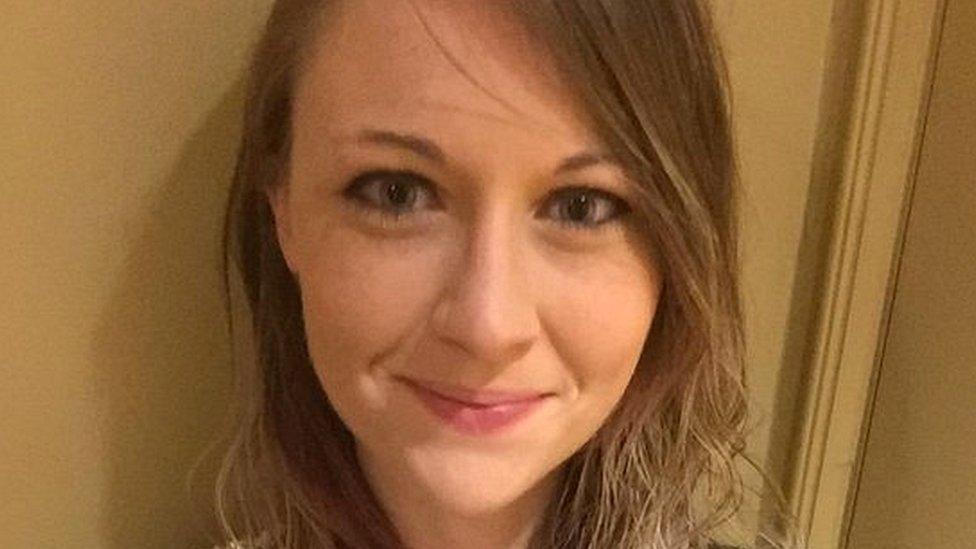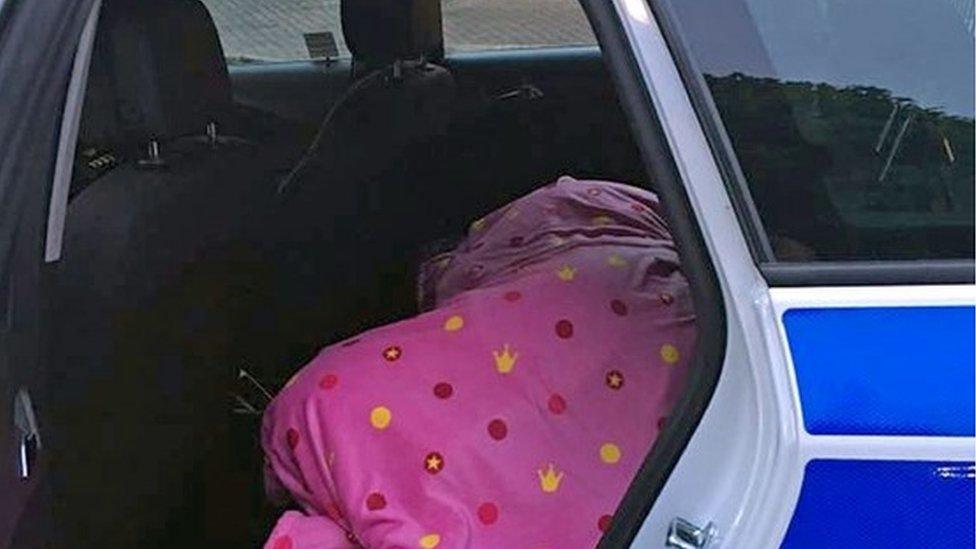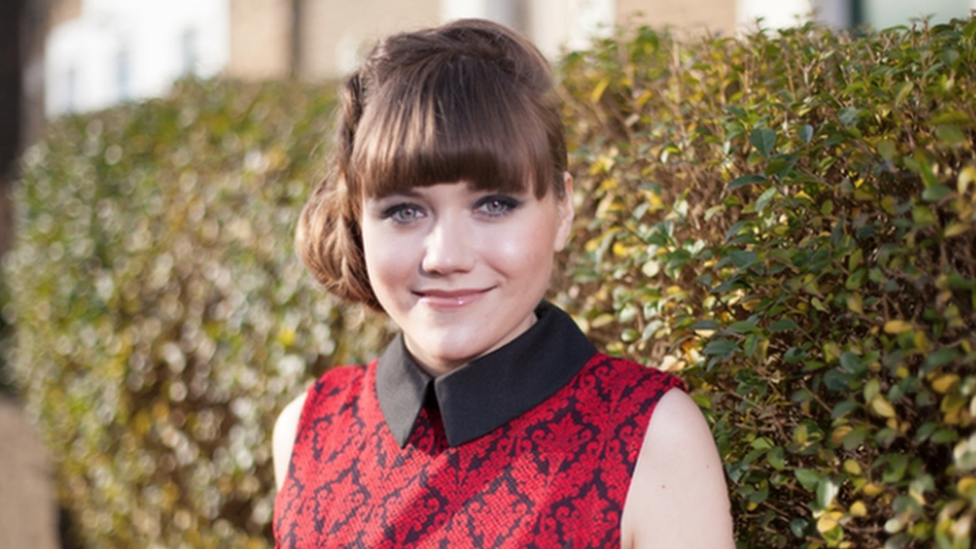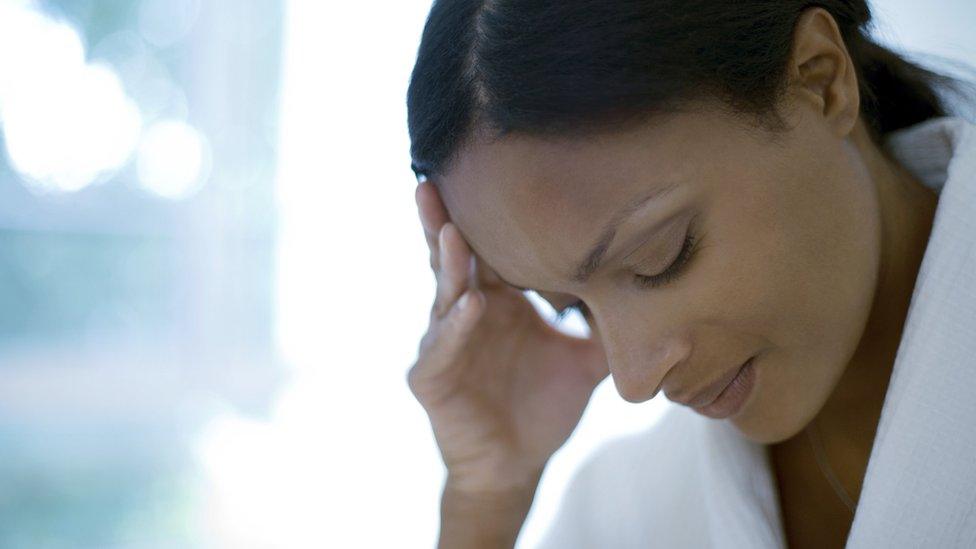Police handling a third more mental health cases, figures suggest
- Published

Katie Simpkins had to sleep in a hospital car park in the back of a police car due to a lack of beds
The number of mental health cases dealt with by police in England and Wales has risen by more than a third in three years, figures obtained by Labour show.
There were 215,000 such cases in 2016-17 - up from 155,000 incidents in 2013-14, freedom of information figures from 23 of 43 forces suggested.
Shadow police minister Louise Haigh said forces were "at breaking point".
The government said £30m of funding to improve community-based places of safety was "having an impact".
Mental health cases - recorded as mental health qualifiers by police - can include criminal incidents such as assaults, and non-criminal incidents such as attempted suicides, where a mental health element is involved.
The total number of incidents increased in each year from 2013-14 to 2016-17 for the 23 forces that provided information.
Some forces saw the number of incidents more than double over the period.
Police Scotland and the Police Service of Northern Ireland are yet to respond.

Slept in a police car
Katie Simpkins, 24, was forced to sleep in the back of a police car outside a mental health hospital in Devizes last August, until a bed became available.
She had attended a minor injuries clinic, after self-harming, but became suicidal in the clinic.
"I told the nurse I wasn't going to let my husband take me home, because he was going to try to keep me alive, and I didn't want that at that point," she said.
Katie was initially detained in a police cell because there were no mental health beds available.
She was offered a bed as soon as one became free - but because of a mix-up, it was not ready when the police took her to the hospital.

Katie Simpkins had to sleep in the back of a police car while she waited to be admitted to the hospital
Police did not return her to her cell because she could have lost her bed as a result of being in a "place of safety".
Instead, officers waited with her in their police car in the hospital car park to ensure she received the help she needed.
She says, in her experience, mental health crisis teams are underfunded and often offer only generic advice.
"When you speak to these crisis teams, they'll say, 'maybe have a hot drink, take deep breaths, or have a hot bath'. They can take hours to call back.
"You are often dealing with male, agency staff members who don't really know you, and you can't open up to.
"By the time they've called back you've already self-harmed, which you were calling up to try to avoid in the first place."
She said the best care she had received was from staff who had got to know her, and could offer more personalised care and advice.

'Reaching crisis point'
Labour's Ms Haigh said: "These staggering new figures expose the extent of the rising demand on our police service.
"Senior police leaders are now being forced to speak out because policing has been pushed to breaking point."
Vicki Nash, head of policy and campaigns at mental health charity Mind, said: "These figures could show that police are better at recognising signs of mental ill-health.
"But it could also show that people are being let down by services and not getting the help they need early on - meaning they become more unwell and more likely to reach crisis point."
Home Secretary Amber Rudd said the number of times police cells were used as places of safety for mental health patients had fallen in England and Wales last year - from around 2,000 in 2015-16 to 1,029 in 2016-17.
"Over the last year significant progress has been made," she said. "In fact, 25 police forces recorded zero or single-figure use of police stations during the year.
"It is clear that the £30m in funding to increase the provision of local heath and community-based places of safety is having an impact."
- Published4 December 2018

- Published26 October 2017

- Published13 July 2017
